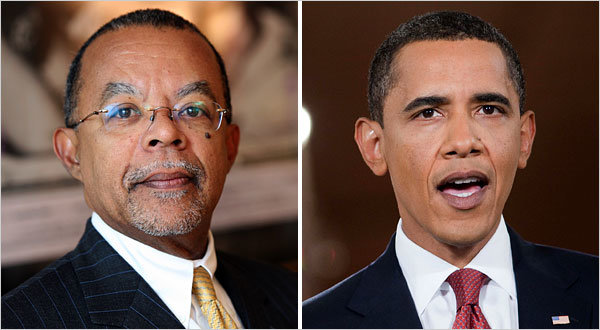Racial profiling has been a volatile issue in America for a very long period of time now. It refers to the practice of taking into consideration one’s racial background during the launch of criminal investigations (Gaines & Miller, 2008). This consideration usually serves to prejudice a member of a race which is suspected of having the greatest likelihood of committing crime.
The greatest weakness of this prejudicial consideration is the fact that even when there is no evidence to justify the case, the police treat an individual as a convict. Some of the states in America are still spotting some incidences of racial profiling even in the twenty first century. The most recent case was the one involving the arrest of Professor Louis Gates Jr., in Cambridge, Mass.

A photo taken by a neighbor of the arrest the past week of Henry Louis Gates Jr. in Cambridge, Mass. (Seelye, 2009).
America has witnessed several cases of racial profiling. It is commonly known as “driving while black” otherwise abbreviated as DWB. This has its origin on the act of the cops who have a habit of pulling over innocent people not due to any form of crime but just because of being black. The police have emerged as the most prominent promoters of this perception (Jennifer, 2003).
They are usually keen on scrutinizing the African Americans purely on the basis of their racial origin. All involvements by the African Americans are regarded with the slightest hint of a form of crime. It was In July 16, 2009 that the police were called upon with claims of an ongoing burglary.
The alleged incident was taking place at Professor Gates’s house yet Professor Gates was doing some repairs in his house. However, the police went ahead with the arrest on the claims of “disturbing public order.” He remained in the hands of the police for over four hours before being released. No apologies were forthcoming from the white police officer responsible for the arrest.
According to recent research findings, racial profiling is alive and kicking in most countries despite the fact it is known to be illegal (Jennifer, 2003). In these countries, a certain group of people from given racial or ethnic background are always suspected of committing crime even before any investigations are conducted. This is the ultimate form of racial profiling where some races are accused on the basis of false premises and assumptions (Hess & Orthmann, 2008).
In the US, for instance, African Americans have been victims of racial profiling. They are usually suspected of burglary, drug abuse and trafficking and related crimes which is the sole reason used by the police to justify their tendency to pull over more Blacks and Latinos.
In fact, President Obama has a record of raising alarm on racial profiling since his time in the Illinois legislature (Seelye, 2009). He introduced a bill, which later passed into law that demanded the police to record the race, gender as well as age of all drivers pulled over for suspected breaking of traffic rules which were to be analyzed for incidences of racial profiling (Muffler, 2009).
During his regular press conference, President Obama stirred waves of varied opinions when responding to questions touching on racial profiling in relation to the arrest of Professor Gates. He noted that race issue remains to be a major factor in the American society.

During his prime-time news conference, President Obama stated that the Cambridge, Mass., police had “acted stupidly” by arresting Henry Louis Gates Jr., the Harvard professor (left) (Seelye, 2009).
The greatest challenge facing racial profiling is that all laws in the criminal justice system are based on the rights of an individual. Here, the individual’s race or ethnic orientation ought not to be a factor to consider when seeking justice. Therefore, before one is convicted of crime, sufficient proof should be collected instead of using race or ethnicity.
The twenty first century should not be characterized by racial profiling due to the fact that the world has become highly multicultural and hence all races and ethnic groups deserve equal treatment when it comes to issues of justice.
References
Gaines, L. & Miller, R. (2008). Criminal Justice in Action (5th ed). Cengage Learning
Hess, K., & Orthmann, C. (2008). Introduction to law Enforcement and Criminal Justice (9th ed). Cengage Learning
Jennifer, P. (2003). United States vs. Arvizu: Investigatory stops and fourth amendment. Journal of Criminal Law and Criminology, 93 (4): 1033-1056
Muffler, S. (2009). Understanding racial profiling: issues, data, and analyses. Nova Plc.
Seelye, K. Q. (July 23, 2009). “Obama Wades Into Volatile Racial Issue.” The New York Times